Alberta
Province to issue heavy fines against people who reject COVID-19 public orders

From the Province of Alberta
Enforcing measures to stop spread of COVID-19
61 more COVID-19 confirmations in Alberta. Total to 419
To protect the health and safety of Albertans, law enforcement agencies have been granted full authority to enforce public health orders and issue fines.
In addition, it is now mandatory for travellers returning from outside of Canada to self-isolate. This legal requirement also applies to close contacts of confirmed COVID-19 cases, as well as to any individual with symptoms, such as a fever, cough, sore throat or runny nose.
“We must do everything we can to protect Albertans through this pandemic. While the vast majority of Albertans are doing their part to flatten the curve by self-isolating, practising physical distancing or helping those who are self-isolating, some are not. Self-isolation orders are not suggestions or guidelines – they are now the law and they must be followed. Anyone putting their families, their neighbours, or other Albertans at risk will face consequences.”
Through amendments to the Procedures Regulation under the Provincial Offences Procedures Act, community peace officers, in addition to police, will be able to issue tickets to enforce COVID-19 public health orders. Fines now administered through tickets for violating an order have increased from up to $100 per day to a prescribed fine of $1,000 per occurrence. Courts will also have increased powers to administer fines of up to $100,000 for a first offence and up to $500,000 for a subsequent offence for more serious violations. These new fines will be in force over the coming days.
“The chief medical officer of health has the full cooperation of community peace officers and local policing to ensure Albertans comply with orders. Albertans’ health is and will always be our top priority, and we will use all necessary enforcement measures to ensure Albertans take this situation seriously by self-isolating and limiting mass gatherings.”
Public health orders subject to fines for violation include:
- Any individual who has travelled outside of Canada must go into mandatory self-isolation for 14 days from their return, plus an additional 10 days from the onset of any symptoms should they occur, whichever is longer.
- Any individual who exhibits COVID-19 symptoms must self-isolate for a minimum of 10 days from the start of their symptoms, or until the symptoms resolve, whichever is longer. Symptoms include cough, fever, shortness of breath, runny nose, or a sore throat.
- Any individual who has been identified by as a close contact of a person(s) with COVID-19 must go into mandatory self-isolation for 14 days from the date of last having been exposed to COVID-19, plus an additional 10 days from the onset of any symptoms should they occur, whichever is longer.
- Mass gatherings must be limited to no more than 50 attendees.
- Access to public recreational facilities, private entertainment facilities, bars and nightclubs is prohibited.
- Visitation to long-term care and other continuing care facilities is limited to essential visitors only.
The Government of Alberta and Alberta Health Services are working with local enforcement agencies to manage complaints, which can be submitted online.
Exemptions will continue to be assessed on a case-by-case basis by public health officials.
Quick facts
- All Albertans have a responsibility to help prevent the spread. Take steps to protect yourself and others:
- practise social distancing
- stay home and away from others if sick or in isolation
- practise good hygiene – wash hands often for at least 20 seconds, cover coughs and sneezes, and avoid touching your face
- monitor for symptoms, such as cough, fever, fatigue or difficulty breathing
- Anyone who has health concerns or is experiencing symptoms of COVID-19 should complete an online COVID-19 self-assessment.
- For recommendations on protecting yourself and your community, visit alberta.ca/COVID19.
Nancy Southern has the skills and experience to help Alberta find its way forward
Alberta
Game changer: Trans Mountain pipeline expansion complete and starting to flow Canada’s oil to the world
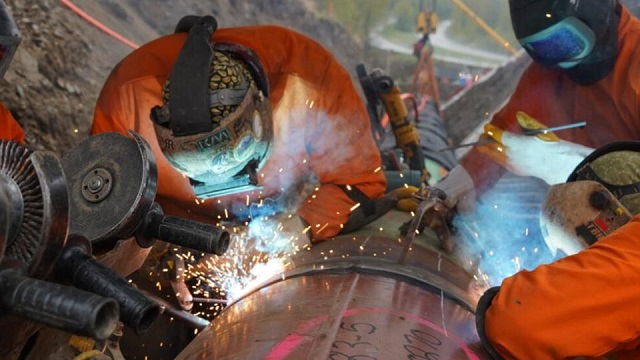
Workers complete the “golden weld” of the Trans Mountain pipeline expansion on April 11, 2024 in the Fraser Valley between Hope and Chilliwack, B.C. The project saw mechanical completion on April 30, 2024. Photo courtesy Trans Mountain Corporation
From the Canadian Energy Centre
By Will Gibson
‘We’re going to be moving into a market where buyers are going to be competing to buy Canadian oil’
It is a game changer for Canada that will have ripple effects around the world.
The Trans Mountain pipeline expansion is now complete. And for the first time, global customers can access large volumes of Canadian oil, with the benefits flowing to Canada’s economy and Indigenous communities.
“We’re going to be moving into a market where buyers are going to be competing to buy Canadian oil,” BMO Capital Markets director Randy Ollenberger said recently, adding this is expected to result in a better price for Canadian oil relative to other global benchmarks.
The long-awaited expansion nearly triples capacity on the Trans Mountain system from Edmonton to the West Coast to approximately 890,000 barrels per day. Customers for the first shipments include refiners in China, California and India, according to media reports.
Shippers include all six members of the Pathways Alliance, a group of companies representing 95 per cent of oil sands production that together plan to reduce emissions from operations by 22 megatonnes by 2030 on the way to net zero by 2050.
The first tanker shipment from Trans Mountain’s expanded Westridge Marine Terminal is expected later in May.
 Photo courtesy Trans Mountain Corporation
Photo courtesy Trans Mountain Corporation
The new capacity on the Trans Mountain system comes as demand for Canadian oil from markets outside the United States is on the rise.
According to the Canada Energy Regulator, exports to destinations beyond the U.S. have averaged a record 267,000 barrels per day so far this year, up from about 130,000 barrels per day in 2020 and 33,000 barrels per day in 2017.
“Oil demand globally continues to go up,” said Phil Skolnick, New York-based oil market analyst with Eight Capital.
“Both India and China are looking to add millions of barrels a day of refining capacity through 2030.”
In India, refining demand will increase mainly for so-called medium and heavy oil like what is produced in Canada, he said.
“That’s where TMX is the opportunity for Canada, because that’s the route to get to India.”
Led by India and China, oil demand in the Asia-Pacific region is projected to increase from 36 million barrels per day in 2022 to 52 million barrels per day in 2050, according to the U.S. Energy Information Administration.
More oil coming from Canada will shake up markets for similar world oil streams including from Russia, Ecuador, and Iraq, according to analysts with Rystad Energy and Argus Media.
Expanded exports are expected to improve pricing for Canadian heavy oil, which “have been depressed for many years” in part due to pipeline shortages, according to TD Economics.
 Photo courtesy Trans Mountain Corporation
Photo courtesy Trans Mountain Corporation
In recent years, the price for oil benchmark Western Canadian Select (WCS) has hovered between $18-$20 lower than West Texas Intermediate (WTI) “to reflect these hurdles,” analyst Marc Ercolao wrote in March.
“That spread should narrow as a result of the Trans Mountain completion,” he wrote.
“Looking forward, WCS prices could conservatively close the spread by $3–4/barrel later this year, which will incentivize production and support industry profitability.”
Canada’s Parliamentary Budget Office has said that an increase of US$5 per barrel for Canadian heavy oil would add $6 billion to Canada’s economy over the course of one year.
The Trans Mountain Expansion will leave a lasting economic legacy, according to an impact assessment conducted by Ernst & Young in March 2023.
In addition to $4.9 billion in contracts with Indigenous businesses during construction, the project leaves behind more than $650 million in benefit agreements and $1.2 billion in skills training with Indigenous communities.
Ernst & Young found that between 2024 and 2043, the expanded Trans Mountain system will pay $3.7 billion in wages, generate $9.2 billion in GDP, and pay $2.8 billion in government taxes.
Alberta
Alberta government should eliminate corporate welfare to generate benefits for Albertans
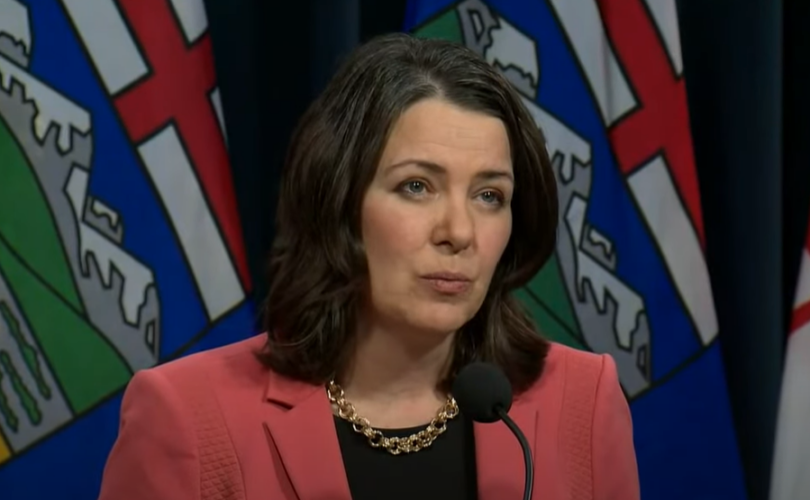
From the Fraser Institute
By Spencer Gudewill and Tegan Hill
Last November, Premier Danielle Smith announced that her government will give up to $1.8 billion in subsidies to Dow Chemicals, which plans to expand a petrochemical project northeast of Edmonton. In other words, $1.8 billion in corporate welfare.
And this is just one example of corporate welfare paid for by Albertans.
According to a recent study published by the Fraser Institute, from 2007 to 2021, the latest year of available data, the Alberta government spent $31.0 billion (inflation-adjusted) on subsidies (a.k.a. corporate welfare) to select firms and businesses, purportedly to help Albertans. And this number excludes other forms of government handouts such as loan guarantees, direct investment and regulatory or tax privileges for particular firms and industries. So the total cost of corporate welfare in Alberta is likely much higher.
Why should Albertans care?
First off, there’s little evidence that corporate welfare generates widespread economic growth or jobs. In fact, evidence suggests the contrary—that subsidies result in a net loss to the economy by shifting resources to less productive sectors or locations (what economists call the “substitution effect”) and/or by keeping businesses alive that are otherwise economically unviable (i.e. “zombie companies”). This misallocation of resources leads to a less efficient, less productive and less prosperous Alberta.
And there are other costs to corporate welfare.
For example, between 2007 and 2019 (the latest year of pre-COVID data), every year on average the Alberta government spent 35 cents (out of every dollar of business income tax revenue it collected) on corporate welfare. Given that workers bear the burden of more than half of any business income tax indirectly through lower wages, if the government reduced business income taxes rather than spend money on corporate welfare, workers could benefit.
Moreover, Premier Smith failed in last month’s provincial budget to provide promised personal income tax relief and create a lower tax bracket for incomes below $60,000 to provide $760 in annual savings for Albertans (on average). But in 2019, after adjusting for inflation, the Alberta government spent $2.4 billion on corporate welfare—equivalent to $1,034 per tax filer. Clearly, instead of subsidizing select businesses, the Smith government could have kept its promise to lower personal income taxes.
Finally, there’s the Heritage Fund, which the Alberta government created almost 50 years ago to save a share of the province’s resource wealth for the future.
In her 2024 budget, Premier Smith earmarked $2.0 billion for the Heritage Fund this fiscal year—almost the exact amount spent on corporate welfare each year (on average) between 2007 and 2019. Put another way, the Alberta government could save twice as much in the Heritage Fund in 2024/25 if it ended corporate welfare, which would help Premier Smith keep her promise to build up the Heritage Fund to between $250 billion and $400 billion by 2050.
By eliminating corporate welfare, the Smith government can create fiscal room to reduce personal and business income taxes, or save more in the Heritage Fund. Any of these options will benefit Albertans far more than wasteful billion-dollar subsidies to favoured firms.
Authors:
-

 illegal immigration2 days ago
illegal immigration2 days agoBiden’s DOJ Threatens To Sue Another State For Enforcing Immigration Law
-
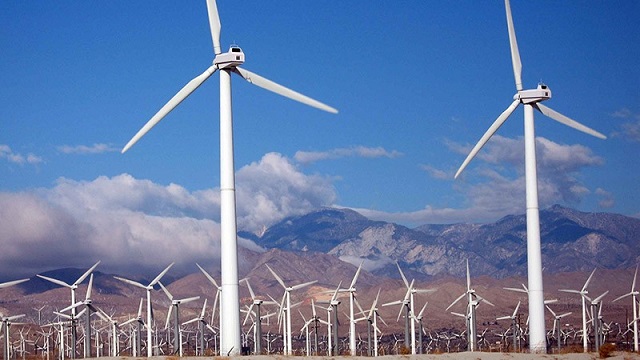
 Economy2 days ago
Economy2 days ago‘Gambling With The Grid’: New Data Highlights Achilles’ Heel Of One Of Biden’s Favorite Green Power Sources
-
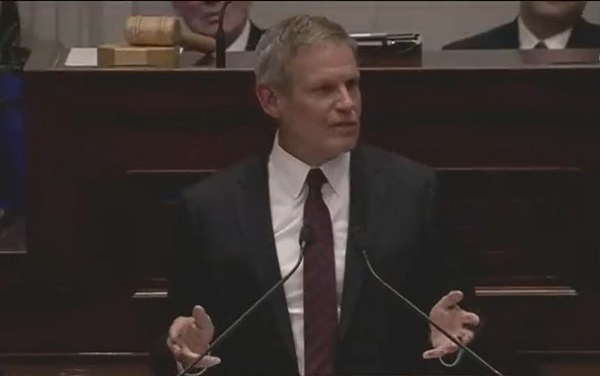
 ESG2 days ago
ESG2 days agoTennessee Taking Lead In Protecting Civil Rights And Free Enterprise—And Stopping Political Debanking
-

 conflict1 day ago
conflict1 day agoOver 200 Days Into War, Family Of American Hostage in Gaza Strives For Deal To Bring Son Home
-

 Brownstone Institute10 hours ago
Brownstone Institute10 hours agoThe Predictable Wastes of Covid Relief
-
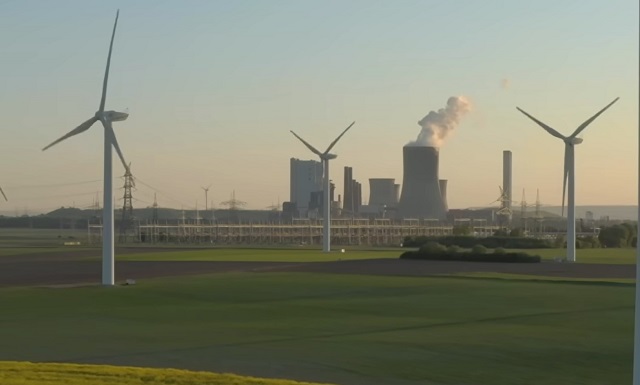
 Energy2 days ago
Energy2 days agoMarket Realities Are Throwing Wrench In Biden’s Green Energy Dreams
-

 Brownstone Institute21 hours ago
Brownstone Institute21 hours agoBook Burning Goes Digital
-

 Alberta2 hours ago
Alberta2 hours agoGame changer: Trans Mountain pipeline expansion complete and starting to flow Canada’s oil to the world









